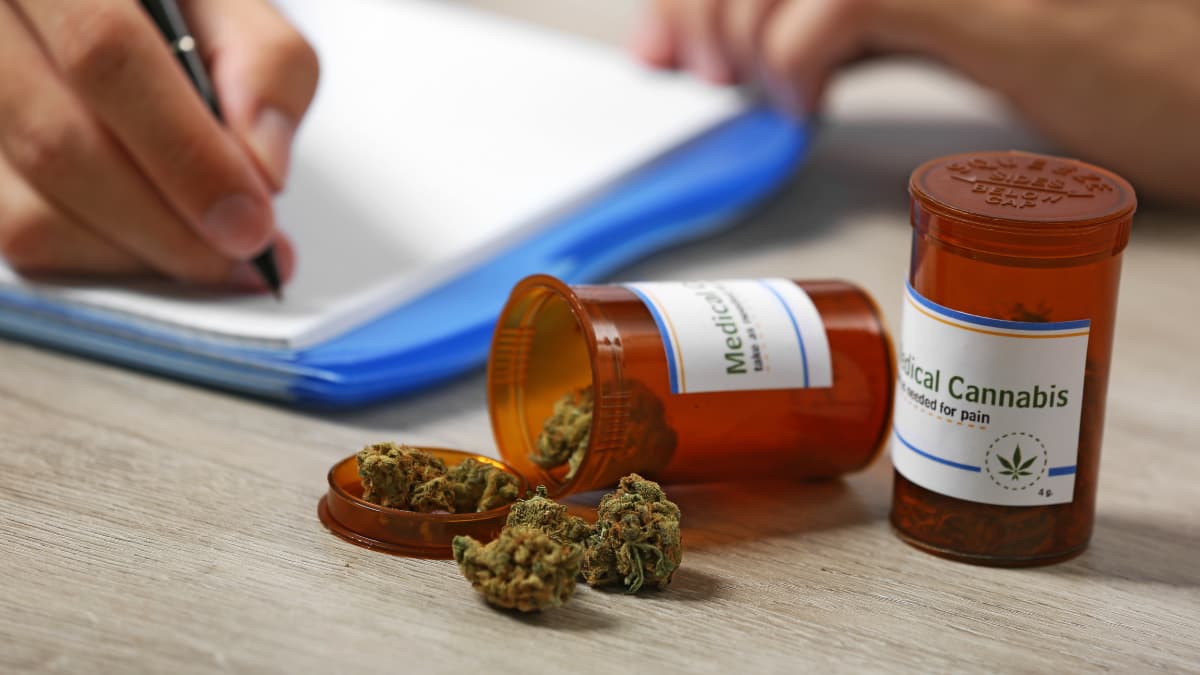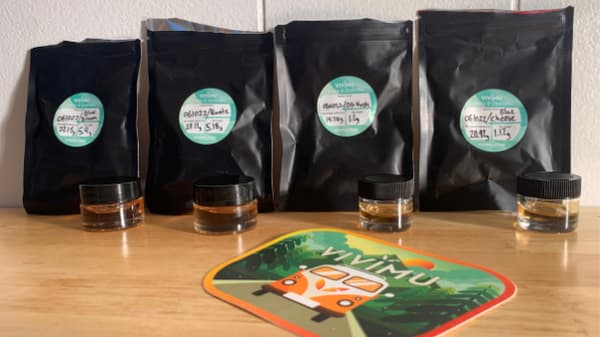What Does A Medical Marijuana Caregiver Do?
A medical marijuana caregiver can make or break a patient’s success with cannabis treatment.
Caregivers are helpers who prioritize their patient’s needs. Without them, many people with valid medical marijuana cards would be unable to access their medication.
Almost every state with a medical program has created a path for patients to add caregivers to their accounts.
Keep reading to learn the details about the role of an MMJ caregiver.

What Is A Medical Marijuana Caregiver?
A medical marijuana caregiver is someone who accepts responsibility for assisting a patient with their medical marijuana treatment.
Minors are not allowed to join state medical marijuana programs on their own. They need the help of a caregiver. And adults who have difficulty with their treatment can also use the help of a registered caregiver.
All caregivers must go through the approval process before they can start helping patients.
The roles and responsibilities of caregivers vary by state. But the core activities are generally the same.
Simply put, a caregiver takes on the role of helping those who can’t help themselves. For example, someone who can’t drive to a dispensary to pick up medication.
Some states only allow caregivers to help with a few specific activities related to treatment. In contrast, other states make it possible for caregivers to help with everything. Including cultivating plants for their patients.
Some of the most common responsibilities for registered medical marijuana caregivers are:
Application assistance
There are numerous reasons why someone might not be able to fill out their own application. Or submit their documents. Minors, for example, cannot do so for legal reasons.
But caregivers can help with everything they need. Starting with getting a physician’s recommendation for medical marijuana.
They may also help by providing supporting documents, transferring documents, and more.
Purchasing Medication
A registered caregiver can purchase marijuana from a licensed dispensary for their patients.
Usually, caregivers will need to present their caregiver registration card to dispensary staff. But some states might only require a photo ID or some other form of program identification.

Transporting Patients and Medication
Caregivers may drive their patients to and from doctors’ appointments. Or to the dispensary to get medication.
They may also transfer medication from a dispensary to their patient. Just make sure they follow the rules set by their state.
They always need to have a valid form of program identification on them to present to law enforcement, just in case.
Many states also require that all medications be left in the original packaging. Caregivers may additionally need to keep receipts for all purchases with the products.
Administering Medications
There are instances when a caregiver may help administer medications. For example, preparing dosage amounts, rolling joints, or applying topicals may all be activities caregivers assist with.
Cultivating Medical Cannabis
Some states allow caregivers to grow cannabis for the sake of their patients. However, all states have regulations in place limiting how much is grown. And there are rules about how and where it is grown.
As you can see, caregivers wear many hats. At the end of the day, they are people who prioritize their cannabis patient’s well-being. And they may do many different things to make sure they have access to their medication.
Why Would You Need A Caregiver?
There are endless reasons why someone might need a caregiver. If you think you may need the help of someone else to implement your medical marijuana treatment plan, speak up!
Ask your MMJ physician about the details of your consultation appointment.
In many cases, there is a form that needs to be filled out by your recommended physician.
This form documents the need for a caregiver. And the physician might be responsible for entering patient and caregiver information into the state system.
If so, this is required so that you can both create your accounts and apply to the state program.
The only way for minors to join a medical marijuana program is with the help of a caregiver. In this case, almost all states require the registered caregiver to be a parent or legal guardian.
Regardless of medical conditions, most minors need help with all aspects of medical marijuana treatment. This includes the application process for purchasing their products.
There are plenty of instances where adults also seek the assistance of a caregiver. This may be due to a debilitating condition. Or anything that makes it difficult for them to complete certain tasks.
Patients who are unable to drive may live in a state that does not allow delivery of medication to home addresses. But with the help of a caregiver, they can still access their medication when they need to.
Some patients may have seriously debilitating conditions. These conditions can limit their ability to administer their own medication. These patients may have a caregiver who is able to prepare medications for various delivery methods.
The activities of caregivers are important to the health and well-being of their patients. There is a process to becoming a caregiver. It is there to make sure the program runs smoothly and that patients get the level of help they deserve.

How to Become a Medical Marijuana Caregiver
You can become a caregiver if you meet a few basic requirements and apply through your state.
Caregivers usually need to be at least 21 years of age or older. And they need to be a resident of the state where their patient resides.
Most states require caregivers to complete a criminal background check. This is to make sure that they have no drug-related felony convictions. People with this background are ineligible to become part of the program.
As long as you meet your state requirements you can apply to be a caregiver. You will need to complete an application and submit it with any accompanying fees.
There are no fees for caregiver applications in states like New Mexico or Massachusetts. But in others, for example, Arizona, there are additional fees ($200 in New Mexico). This needs to be paid every year upon renewal, just like a regular medical card.
Depending on the state that you live in, there may be some additional steps to becoming a caregiver.
For example, in Alaska, caregivers cannot be on probation or parole at all. It makes no difference whether the reason is drug-related.
In California, caregivers as young as 18 can join the program and assist patients. But they need to live in the same city or county as their patient.
Colorado has a bit of a unique caregiver system. They have four caregiver designations:
- Cultivating
- Transporting
- Advising
- Parents of a minor patient
But only the caretakers with transporting and cultivating designations need to register with the state.
How to Find a Medical Marijuana Caregiver
The best way to find a medical marijuana caregiver is to speak with your physician. They will inform you what is allowed in your state.
In many states, family members or close friends are allowed to act as a caregiver. If you have a family member or friend who wants to assist you, that is great. Your physician may be able to help you start the process of registering them.
If you are in need of a caregiver and don’t have someone in mind, you still have some options. You might be able to ask a nurse or employee of a licensed facility you visit.
For example, in California, patients can register an employee from a clinic, hospice, or home health agency to act as their caregiver.
Wrapping Up: MMJ Caregiver
Caregivers are an invaluable tool for medical marijuana patients. They can increase the success of medical cannabis treatment. And improve the quality of life for their patients.
The best way to get or become a caregiver is to learn about the medical cannabis laws in your state.
You can find answers from your doctor and the agency that regulates your state’s medical marijuana program.

